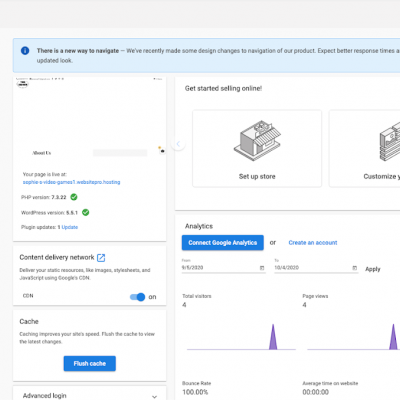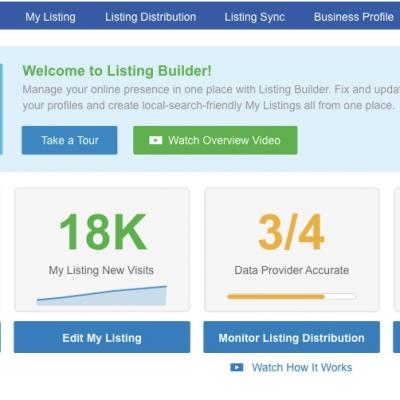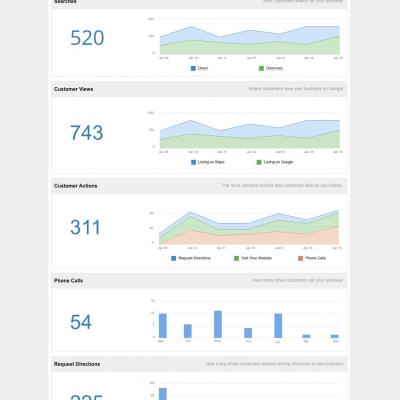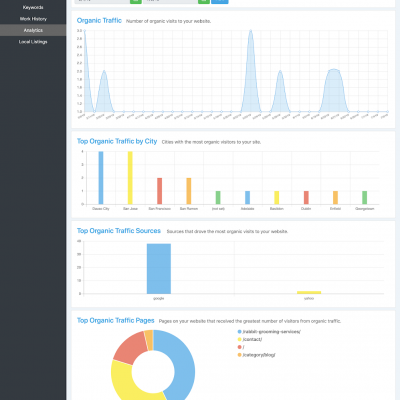Please send me the free "Business Website Essentials" guide so I can learn more about making my website a better marketing tool for my business!
7 small business network security tips
This post was originally published on Oct. 19, 2018, and was updated on Oct. 27, 2020. Have you ever had your email or social media […]
The post 7 small business network security tips appeared first on GoDaddy Blog.
This post was originally published on Oct. 19, 2018, and was updated on Oct. 27, 2020.
Have you ever had your email or social media hacked? It’s upsetting, and the results can be devastating, both personally and professionally. That’s why I’ve put together these small business network security tips to help keep your accounts secure.
Chances are you operate certain aspects of your business from within your home, on your mobile device or through a shared network at your office or coworking space. The beauty of the internet is that it enables us to accomplish tasks efficiently and effectively in the moment, so we can continue to focus on the core functionalities of our business. That being said, it’s important that we understand and remain vigilant of the risks of being connected to the internet.
So let’s talk small business network security.
Related: Understanding Online Security Threats
Why care about small business network security?
Whether working from home or using the public WiFi outside of your local coffee shop, you might think that your network is too small for a potential hacker to commit a cyber attack. Why would they care about what you do in your kitchen? You might also be thinking that your device (i.e. modem, wireless router, computer, tablet or phone) is secure enough right out of the box.
Think again.
In fact, they can occur on any type of network — whether home, business, private, public, big or small. Once your network connects to the internet, it becomes more susceptible to outside threats. Oh, and the modem or router that came pre-configured with a username and password — those factory settings leave you out in the open, just waiting for a malicious cyber attack. (We’ll talk about that in a moment.)
Related: Online security for preventing network attacks
7 small business network security tips
In essence, hackers don’t care about the size of your business or the download speed of your network — it’s nothing personal — they just want to crash your digital party and leave it in ruins. To avoid this cyber disaster, put the following seven small business network security tips into play:
-
Craft hard-to-guess passwords.
-
Change those default admin logins.
-
Change your default network name.
-
Stop broadcasting your SSID.
-
Don’t auto-connect to public WiFi.
-
Keep your antivirus software updated.
-
Back up your data regularly.
Let’s dig in.
1. Craft hard-to-guess passwords
It’s been found that a password of five characters can be guessed in just 10 seconds, but a hacker would have to take approximately 811 trillion guesses to come up with a 14-character password. After a while, they’ll probably give up and move on to the next target.
When you’re crafting a password for your network or account, there are certain best practices to follow:
Don’t reuse old passwords. Once they’re used, they’re stored somewhere. All it takes is one breach, and Bob’s your uncle, you’re hacked!
Avoid names of kids and pets. Imagine how easy it is for a hacker to creep on your social media to gather the names of your kids and pets. Even though it’s easy to remember, it’s also one of the first places they’ll look, so don’t do it.
Use numbers and symbols but not in sequence. A combination of capital letters, lowercase letters, numbers, and symbols mixed together is much harder for a hacker to guess.
Use a longer password. The longer the password, the harder it is to guess. Most experts recommend a password length of 12 to 15 characters.
Related: 10 best practices for creating and securing stronger passwords
2. Change those default admin logins
Whether on your new modem provided by the cable company, that new wireless router you bought online, or your new, shiny website, if it comes with a generic “admin” login, change it right away to strengthen your small business’s network security.
This rings especially true for your broadband modem and router.
Both of these devices include their own embedded server and page that allow you to modify your network address and account information.
Out of the box, these tools are protected with a generic login and password to allow you and cable company employees to make changes to the network. Funny thing is, those same generic logins are provided by the router manufacturers, and they are very popular amongst hackers.
That’s why you need to change them right after installing your new network.

3. Change your default network name
Your modem or router will have a network name (also known as a Service Set Identifier or SSID.) Equipment manufacturers will ship their products with a default SSID like “MyRouter_2.5ghz” or “linksys_5ghz).
Where a hacker could drive by your house or sit in the parking lot and scan SSIDs, you need to make it known that you’re not someone to be trifled with. As silly as it sounds, changing the SSID sends a message to would-be hackers that you’ve most likely changed your password.
It might not detract them from a hacking attempt, but it’s better than letting them think that you’re low-hanging digital fruit.
4. Stop broadcasting your SSID
Your WiFi router will typically broadcast your SSID at regular intervals for people searching for a new network. Router manufacturers originally designed this feature for businesses where customers might roam in and out of range (i.e. going to their car and returning to the business).
If you’re working from home, you really don’t need this feature.
It will increase the likelihood of someone trying to log in to your home network. Even more, it might give them the ability to hack into your smart doorbells, webcams, and robot vacuums, wreaking complete digital havoc. (If you’ve ever heard the story of people breaking into baby cams or smart devices with cameras – it’s horrible and true.)
If you rent an office space, you can most likely disable this feature and provide your customers or clients with the SSID and password to improve network security for your business. You may also have the option to offer a guest SSID, which would prevent prying eyes from accessing your private network.
Related: 10 tips for securing your wireless network
5. Don’t auto-connect to public WiFi

As convenient as it is to have your phone or computer log in to that Starbucks WiFi hotspot, it’s also a potential hacker trap. Still, there come those times when you must use public WiFi to check your inbox or check on your business while you’re on the road. If that’s the case, here are some tips provided by Kasperky Lab:
- Use a VPN (Virtual Private Network) to encrypt your data.
- Enable the Always use HTTPS option to encrypt your login details.
- Turn off sharing of your files and folders.
- For iPhone users, disable Airdrop for everyone.
Related: At least 5 reasons you need a virtual private network (VPN)
6. Keep your antivirus software updated
Antivirus software is a great way to boost your small business network security. A good antivirus software will automatically identify, quarantine, and remove the different types of malware like viruses, ransomware and worms.
If you’ve ever installed antivirus software, you know it’s easy to install and even easier to update. Although it may seem menial, it protects your files and devices more than you know.
To keep on top of the latest malware, be sure to enable automatic virus definition updates.
7. Back up your data regularly
No matter how prepared you are for a cyber attack, sometimes the bad guys win. Where most of your business information and documents are now online, it’s critical to back up your data regularly.
To bolster your small business’s network security, consider investing in a physical external hard drive with enough storage to back up everything. You can find multiple terabyte hard drives for pennies on the dollar these days.
Another (or additional) option: Use a third-party backup solution.
When I present for Google, I teach everyone about Google Workspace, a platform where you can create and collaborate with your team and clients, sharing documents, spreadsheets, presentations and more.
Another great tip: Create a calendar reminder to back up your files once a week, so you can have a fresh version at the ready in case of an attack. Even more, encrypt your backup with a password to truly protect it from prying eyes.
Editor’s note: Why worry about malware when GoDaddy can do it for you? Check out GoDaddy’s Website Backup service, which features built-in daily malware scanning, automatic daily backups, easy one-click restore and more.
Putting it all together
In today’s digital world, if you run a business, you are a potential target. You most likely need to use connected devices like computers, laptops, smartphones and tablets, and each time you connect, you run the risk of being hacked.
But by following these seven small business network security tips, you’ll have a better chance of protecting your data.
The post 7 small business network security tips appeared first on GoDaddy Blog.






